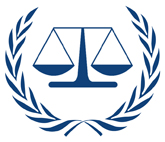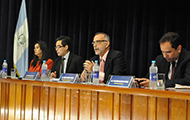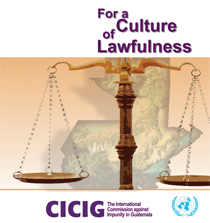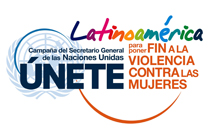 Guatemala, February 24, 2012. The State of Guatemala has formally joined the Rome Statute of the International Criminal Court (ICC) after Decree 3-2012 of the Congress of the Republic entered into force on February 23. As a result, the ICC will now have jurisdiction to try Guatemalans accused of committing genocide, crimes against humanity, war crimes and the crime of aggression.
Guatemala, February 24, 2012. The State of Guatemala has formally joined the Rome Statute of the International Criminal Court (ICC) after Decree 3-2012 of the Congress of the Republic entered into force on February 23. As a result, the ICC will now have jurisdiction to try Guatemalans accused of committing genocide, crimes against humanity, war crimes and the crime of aggression.
The ICC is an independent organization based in The Hague, Netherlands. It is primarily financed by the States Parties; however, it also receives voluntary contributions from governments, international organizations, individuals, corporations and other entities.
The importance of the ICC's creation lies in its role as a body responsible for prosecuting individuals. The cases brought before the Court can be more readily ruled on because delays such as those stemming from the creation of an ad hoc tribunal can be avoided. Criminals use such delays to abscond or witnesses can be intimidated to prevent them from offering statements against the accused.
The ICC can also intervene when the national justice institutions are not willing to punish individuals or are incapable of taking action. The Congress of Guatemala passed the Statute in recognition of the importance of the Court exercising jurisdiction over the most egregious crimes of international concern—a desire held by a number of states since the culmination of World War I.
For a long time the international community longed for the creation of a permanent international tribunal, and in the twentieth century, it forged a general agreement on the definitions of genocide, crimes against humanity and war crimes. At the Nuremberg and Tokyo trails, war crimes, crimes against peace and crimes against humanity committed during World War II were prosecuted.
On July 17, 1998, the international community made history when 120 states passed the Rome Statute—the legal foundations for the creation of the permanent ICC. The Statute has been ratified by 121 countries, including Guatemala.
Accession prepared
In a press release, the Ministry of Foreign Affairs reported that it was preparing the accession instrument of the aforementioned treaty for the purposes of forwarding it to the United Nations in New York, and by doing so, it would render the agreement internationally effective.
The Ministry also added that through the accession to the Statute, the Government of Guatemala was reiterating is commitment to continuing to take any action necessary to "prevent future impunity for human rights violations and international humanitarian law violations in Guatemala".
Rome Statute of the International Criminal Court
International Criminal Court



 Guatemala, February 24, 2012. The State of Guatemala has formally joined the Rome Statute of the International Criminal Court (ICC) after Decree 3-2012 of the Congress of the Republic entered into force on February 23. As a result, the ICC will now have jurisdiction to try Guatemalans accused of committing genocide, crimes against humanity, war crimes and the crime of aggression.
Guatemala, February 24, 2012. The State of Guatemala has formally joined the Rome Statute of the International Criminal Court (ICC) after Decree 3-2012 of the Congress of the Republic entered into force on February 23. As a result, the ICC will now have jurisdiction to try Guatemalans accused of committing genocide, crimes against humanity, war crimes and the crime of aggression.












